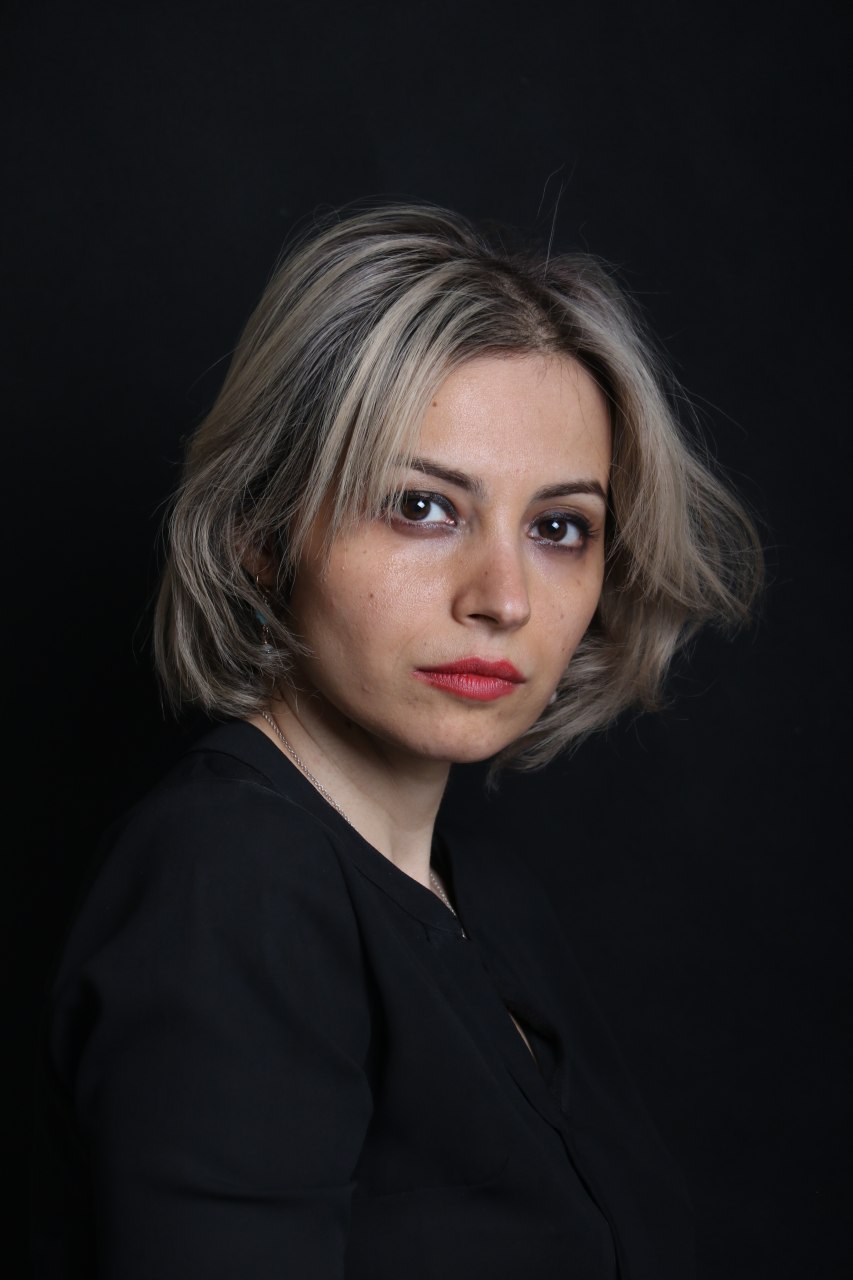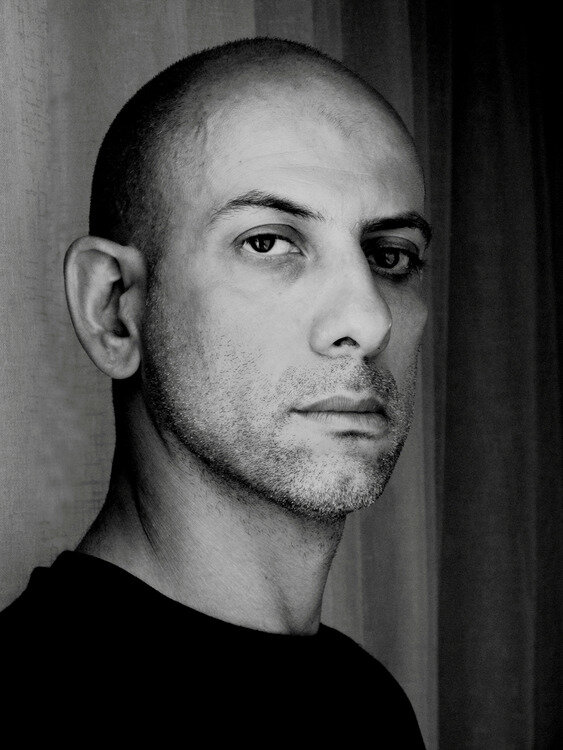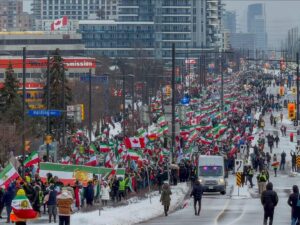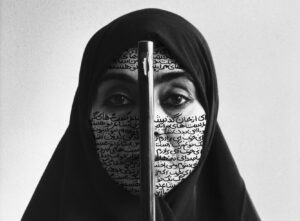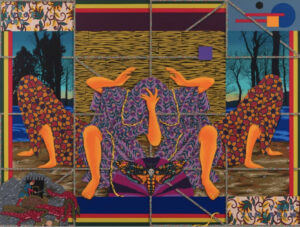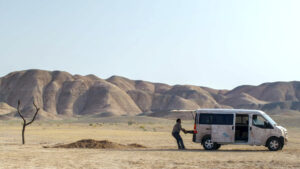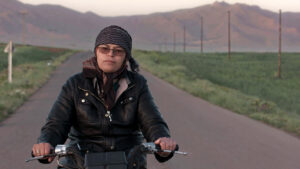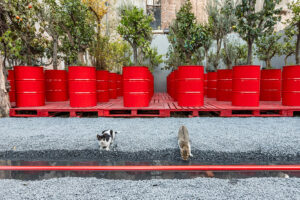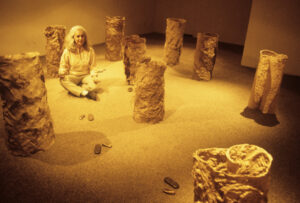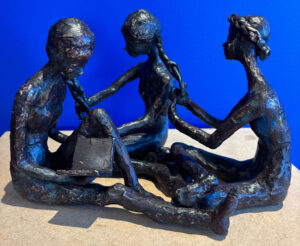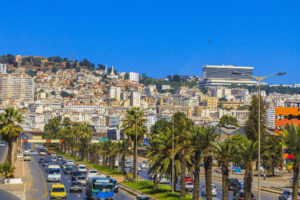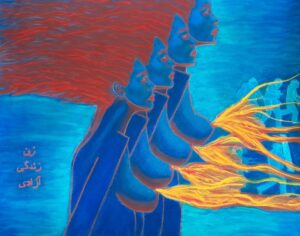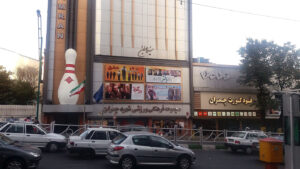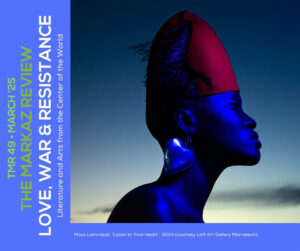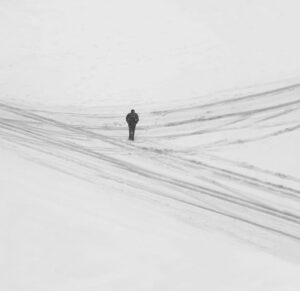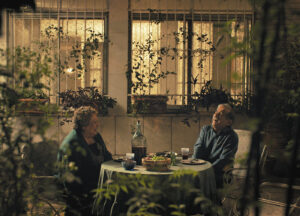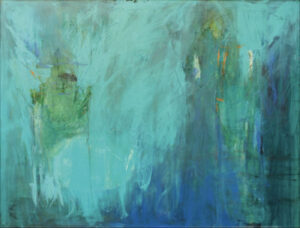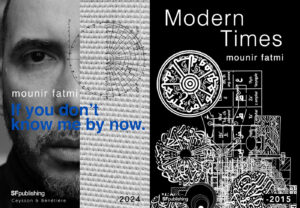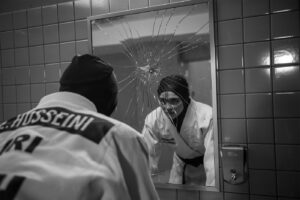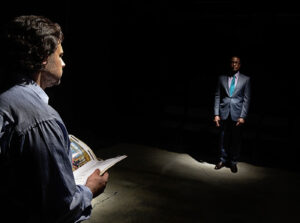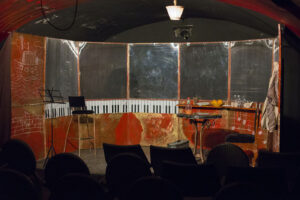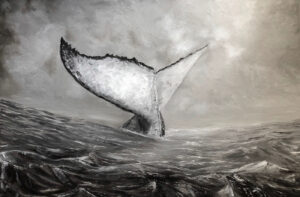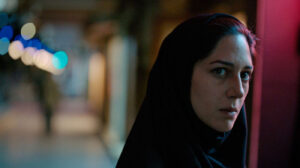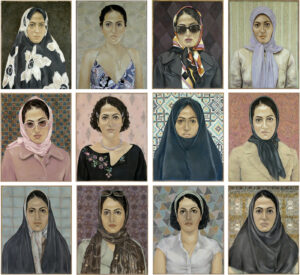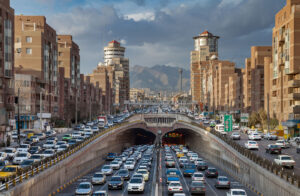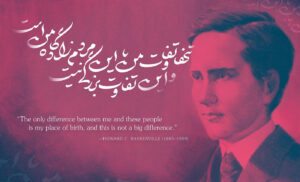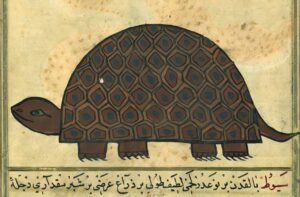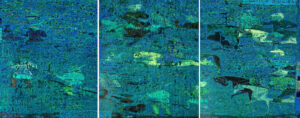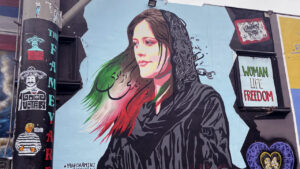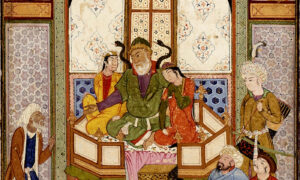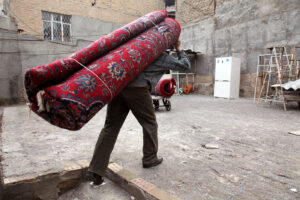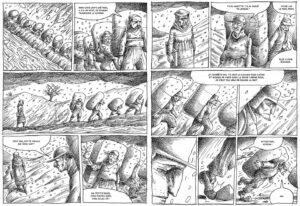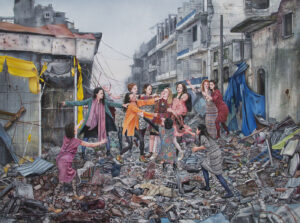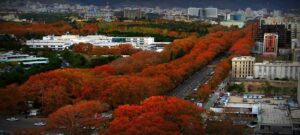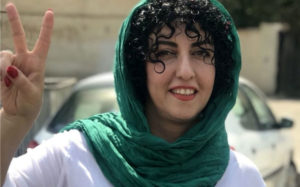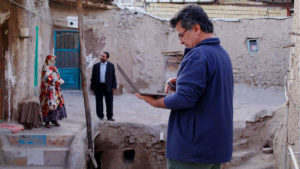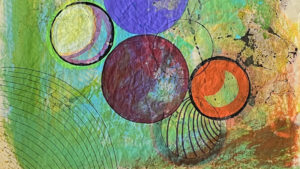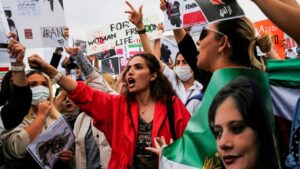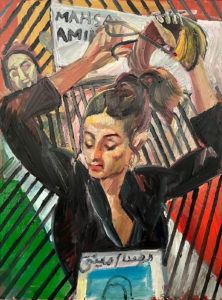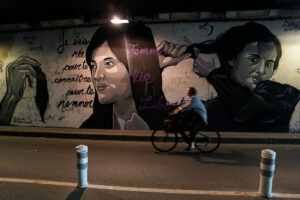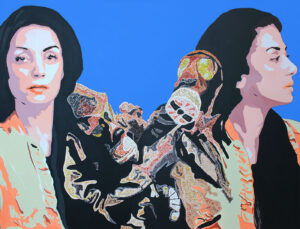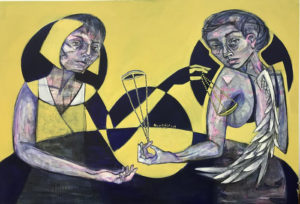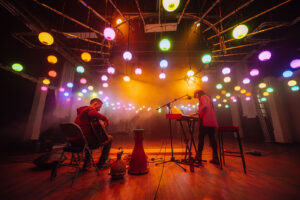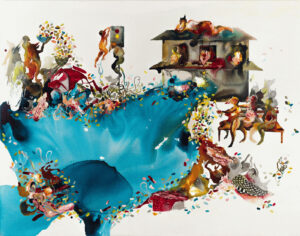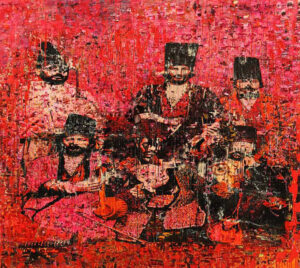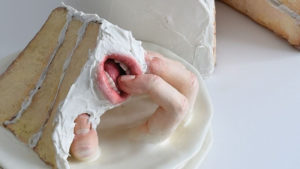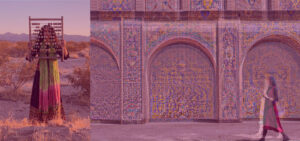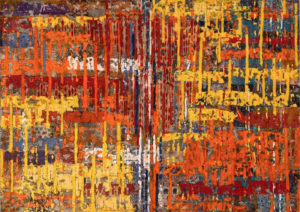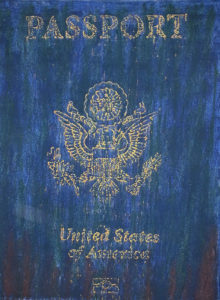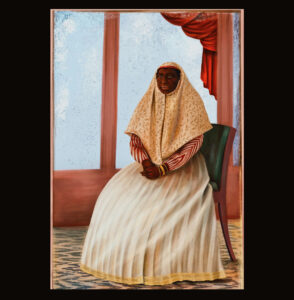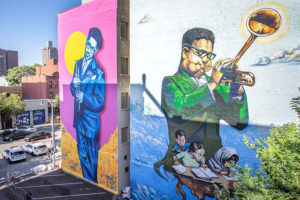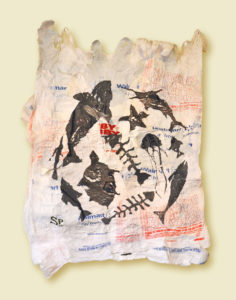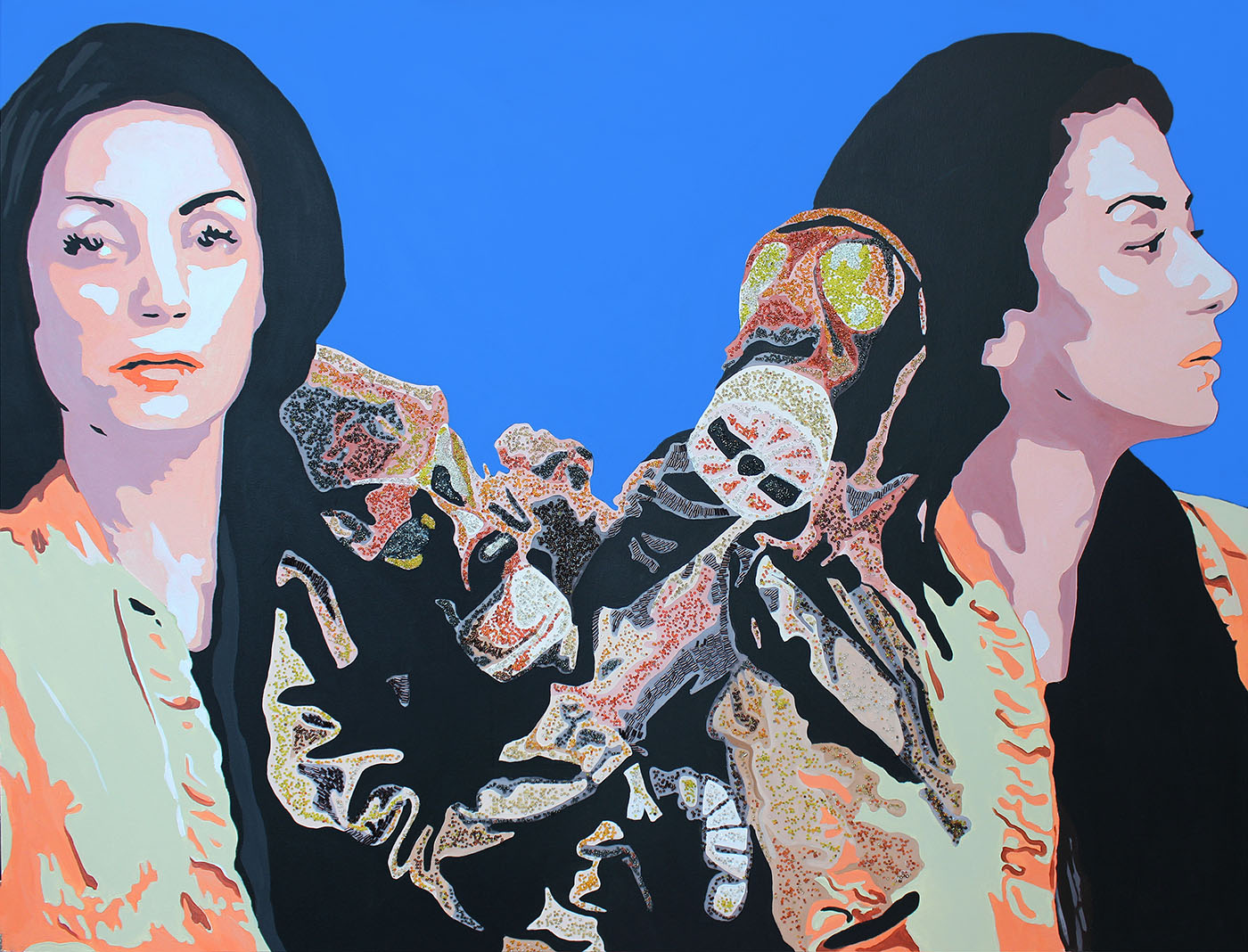
When an oppressive, insulting cleric makes life unbearable at a university campus in Tehran, students rebel. Pandemonium ensues.
Sara Mokhavat
Translated from the Persian by Salar Aboh
Religious Studies was one of those dreary courses that everyone at the university was forced to take. And not just for one term, but three. The so-called professors were always third-rate clerics who hated us and whom we hated with a special venom in return. And none among them was worse than Vaseghi, a turban from Mashhad whose favorite grade to dole out was Fail.
It was on another wasted hour of an October day in 2005 when Vaseghi offered us a smirk and, apropos of nothing, suddenly blurted, “All the women at this Art school are whores.” Then he pointed to the two girls sitting in the front row and added, “These two, for example.”
A few students laughed nervously. The two girls were thrown so off guard that all they could do was smile uneasily. Our class had a pair of twins, brothers. They stood up and protested. The class blew up. In no time the twins were thrown out of the university and so began the student strike.
Students sat in a straight line in the college yard chanting, “Protest!” Someone banged on a metal pot to give our chant some rhythm. Word had come down not to return to our classes until someone from admin came to talk to us.
I had a problem. I loved my Directing and History of Cinema class, so I went anyway. The class was nearly empty; there was only one other guy in there, plus a girl who had her face glued to her desk sleeping. Outside, the protest continued and it was loud. Very loud. The professor said he couldn’t teach like this. He was right, of course. We left to join the protest.
It took no time before our daily protest became routine.
At first no one cared about a bunch of students at the Art University protesting. It wasn’t as if we were University of Tehran students, always serious and always angry. When those guys protested, it made headlines right away, whereas a bunch of artsy kids with their bright shawls and smiling faces no one took seriously. We didn’t know politics and didn’t care about it. What we knew was color, and musical notation, and drama, and aesthetics. We could keep a beat and sit there for hours on end shouting “protest” as if we were in a carnival.
Our college and the College of Industry and Polytechnic shared a wall. But familiarity between us began and ended right there. Polytechnic was massive. It had gates on Hafez Avenue on one side and Valiasr on the other — a sprawling fusion of new, multi-story structures that truly dwarfed our humble little two-story building. Top students from across the country competed to be in that imposing place, whereas all we had were stifling little workshops for photography and pottery and sculpture, plus a few barren trees, and a modest cafeteria that often smelled less like a place to get food and more like a public bathroom.
It was love that kept us here. Love for the forlorn basketball court we’d sometimes play ball in before the dreaded herasat security detail came to shoo us away for no reason. Love for a place we did not want changed at all, worshipping every single piece of brick that kept it together so that we could go on imagining all the legends who had studied here before us.
After a few days, the students from the Music Conservatory in Karaj came down to join us. Now we had their more complicated percussions to go with ours. This made the passersby on the street begin to take notice. In the mornings people would stop on their way to work holding their donuts and coffee, especially those on their way to the nearby metro station. They’d watch us for a while from the sidewalk, smile and wave and move on. Their numbers began to increase by the end of the first week, so did the amount of time they’d linger there. We were putting on a show and their sleepy mornings suddenly had a bit of color because of us.
Herasat security decided to throw a huge piece of black cloth over the metal bars of the school entrance so that our audience would go away. Wrong move. We attacked that thing with a vengeance and shredded it into a thousand pieces while the people on the street clapped and whistled and encouraged us not to give in.
The week passed that way. The college president still wouldn’t come down to see what this was all about. And yet each day Vaseghi, the instigator of it all — the man who at one time or another had insulted every single female student who attended this university — would materialize with that same hateful smirk on his face, throw a triumphant fist at us as if to give us the finger before disappearing inside the building.
On the tenth day something happened. Something big. The students at Polytechnic finally decided to pay us some attention. In the beginning we were the butt of the usual jokes to them. They said things like, “These watercolor girls and boys mistake dancing for revolution.” But then on day ten, a huge banner was thrown from their side of the wall to ours declaring solidarity. The fight was on; we were no longer alone.
I was only 19 then. The world was nothing but light and possibility for me. And why shouldn’t it be? The very first year that I’d taken the national exams I’d been accepted into my first choice as a film major. I was free of my family at last and could pack up and come to Tehran. To live and study in the capital and, now, to be able to be a part of a campaign for justice — if this wasn’t independence I don’t know what was.
Next came support from the University of Tehran. Their student leaders sent us a letter and decided to shut down classes for a day and have everyone come join us. They wrote about our cause in their papers and officially asked the Art University students not to give in until they could come to our aid. Our protest had suddenly taken on scary dimensions. This wasn’t just a group of easily ignored art students anymore. The presidents of University of Tehran and Polytechnic sent a direct complaint to the Ministry of Education and the minister called our college president to his office and gave him an ultimatum to make this protest disappear or else.
The man still refused to see us, and instead began sending spies among the protesting students and had herasat harassing us the whole time we were there. We were afraid. Afraid of many things, but mostly afraid of being kicked out. So many of us had dreamed for years of strolling casually on the grounds of this very campus. We had absolutely nothing else, especially those of us like me from the provinces. Everything we’d dreamed of passed through these gates; we knew there was no choice but to retreat and so we did.
The college summoned the student leaders and promptly confiscated their student cards. Everybody else was given a stern warning — show up to your classes or you’ll be kicked out of school. We did as we were told. Though there were still some twenty students who wouldn’t give up. Mehrnoosh and Elham were two of those people. They were my dorm mates and friends. When they realized that if they left the campus they’d never be allowed back in, they decided to stay in and even sleep in the college courtyard if they had to. I on the other hand went back to classes. I especially missed acting class. I wanted to drink in cinema, all of it. It was my life’s priority; everything else came a distant second.
From the women’s dorm to the campus was a ten minute walk. We ended up taking sheets and blankets for our classmates who had decided to continue the protest. It was well past midnight now. I lay on my bed, alone, reading up on the Stanislavsky method of acting. I’d gotten a call earlier from none other than one of Iran’s most successful directors, Ebrahim Hatamikia. He wanted me to come in the next day and test for a new TV series he was going to direct. To say I was excited is a huge understatement. All afternoon I’d hardly been able to breathe. Acting for the famed director meant covering ten thousand kilometers of a career in one day. I’d be set. My dreams were literally around the corner.
Our suite had a shared phone. Those were the early days of cellphones in Iran and none of us had one yet. At some point the phone began ringing and it would not stop. Someone somewhere finally shouted that I should pick up the damn phone. Reluctantly I jumped off the bunk bed and picked up.
I heard Elham’s voice whispering, “We’re told there’s someone in our room. Go see who it is.”
“Rasouli is on guard duty tonight. The woman never gives extra keys out. You guys come find out what’s going on yourselves.”
“We can’t. They’ve locked the campus gates. There’s no way to get out. Something is going on tonight, Sara. I’m sure of it.”
Her words so terrified me that I hung up the phone.
Our rooms were on the ground floor. Elham and Mehrnoosh were in suite 3, diagonally across from us. There were two other rooms besides theirs in that unit. The lights of both those rooms were on. I put an ear to Elham’s and Mehrnoosh’s door. No sound. I knocked and tried the handle. Right away a girl in one of the adjoining rooms opened her door, pointed, and made enough awkward gestures with her face to make me understand something was going on. I figured she must have been the one to call Elham. The girl was one of those who always know what’s happening but never get directly involved.
The guard room was next to the dorm’s entrance. Whoever was on duty stayed here and their main job was to know when students entered and left the building. Past nine pm, no one was allowed in. If a student was late, their parents were called right away. The assumption was that if you were late, you were up to no good.
Rasouli, who was on duty that night, was a big woman, tall and broad shouldered. Yet despite her bulk and expressionless face she was actually more lenient than the other guards. She would always let us inside even if we were a little late, though first we had to hear one of her speeches about how grateful we should be to be here and how we shouldn’t abuse the trust of our parents who had allowed us to come study in Tehran.
The curtain to the guard room was drawn. I knocked tentatively. Rasouli had always been kind to me. Whenever I was late for dinner, she’d make sure to set aside a piece of bread at least. She drew the curtain open and on seeing me unlocked the window.
“Elham and Mehrnoosh are worried. Their neighbors heard sounds coming from their room. They think it’s a thief.”
She frowned. “You go back to your room. I’ll check myself.”
“I’d rather go with you. Or just give me the spare key so I can go look.”
Rasouli went pale. “I can’t go into anyone’s room without permission. And you won’t either. If something gets lost in there tomorrow, they’ll be blaming me.”
“They’ll blame you tomorrow if that thief gets away with their stuff tonight.”
She was getting angry now and began raising her voice.
Sakinah, a student rep whose suite was on the second floor, must have heard us. She came downstairs. When I told her what was going on she began arguing with Rasouli, who was getting paler and angrier by the second.
“We’ll break the door down if you don’t open it,” Sakinah told her.
Rasouli banged the porthole shut and locked it. “I’ll call the men from herasat to come deal with you guys if you don’t go away.”
By now everyone was awake and they were trickling down from the various floors to see what was happening.
It was only the second month of the academic year and the freshmen had only moved in a few weeks earlier. Rumor quickly spread throughout the floors that a man was inside the building, but he’d been seen and now was hiding in one of the rooms. This drove all the new girls to put their hijabs on. Their sleepy faces were terrified as they held onto each other and watched while us older students, hijab-less, half naked and incensed, tried to reason with Rasouli.
Several people now stood behind the suspect room and started banging on it. Things were getting out of hand. Someone brought news that our male classmates had gotten wind of the situation and were heading this way from their own dorms. I was handed a piece of paper and told that the protest leaders wanted me to write a paragraph describing all that had taken place tonight and then have everyone in the dormitory sign it. I sat on my knees in the middle of the hallway trying to come up with the right words. Girls stood over me offering advice on what to write. My paragraph went from bad to worse. It was impossible to concentrate.
There was still no sound from the room and no one could get it open. In the midst of all the uproar — me trying to write my witness account with half the girls giving me advice on how to write it and the other half hovering around the room and taking turns shouting and banging on the door — suddenly a loud scream from inside there stopped everybody in their tracks. There was dead quiet for a moment and then I jumped up shouting, “Who’s in there? Open up right this second.”
“Dirty spy,” someone pitched in, “Come on out of there.”
The room had gone quiet again.
One of the girls offered to go hang from the window of the floor above and try to see what was going on in there. There was a collective “yes” and several other girls went upstairs with the volunteer.
Rasouli lost it. She was running around screaming at the top of her voice and threatening everyone with suspension. “Herasat is on its way,” she kept shouting. “You’ll all be kicked out.”
There were two long lines by the phone kiosks at the end of hall. Rasouli had already cut off all the private phones inside the suites. Now the newly arrived first year students were taking turns calling their parents from the kiosks and begging them to come get them. The story of the imaginary rapist was making the rounds from one call to another.
Upstairs they finally managed to see into the room. Someone ran downstairs to tell us there was definitely movement behind the drawn curtain. As soon as they put a flashlight to the window whoever was in there froze and after a while slipped under the bed.
“Let’s get a head count and see who isn’t here,” Sakinah suggested. “If there’s a spy in this building, we’ll know right away.”
“Forget that,” I said. “Let’s ask the girls upstairs to break the window.”
This set Rasouli off again. “You! I’m having you thrown out of this college first thing tomorrow.”
Just then a shriek from inside the room stopped us cold again. “Stop it! You’re killing her. That’s right, we’re in here. She has a heart problem for the love of God, she’s not breathing. Ms. Rasouli, please help us.”
It was as if someone had clobbered me over the head. That was Najma’s voice. My own roommate. My kind and caring roommate who slept on the bunk below me. The same Najma who over the past two years would make me soup whenever I was sick and took me on long walks when I was depressed. I could not process this. Najma, a spy? The Najma I knew was a straight A student who turned each Domestic Handicraft assignment that professors gave us into a total work of art. It could not be. And as for the other girl, the only one here with a heart problem was Maryam. That had to be her. A gentle girl who had a weight issue and could often be seen hanging out in Rasouli’s office chatting with her. Trying to hide under the bed must have made her queasy and apparently, she had difficulty breathing.
Rasouli gave up. She pushed us aside, took out her enormous key chain and tried unlocking the door. To no avail. While she struggled with the door I noticed how her hands had been badly scratched up during the push and pull of the past few minutes. The key wouldn’t turn and finally the entire door handle came out with the door still locked.
We all felt ridiculous. From inside the room Najma was now imploring us to open the door before Maryam suffocated.
“Open the window in there so she can get some fresh air,” Sakinah commanded
We heard Najma open the window and as soon as she did several girls took turns jumping inside the room.
I looked around. Locked out on our end, the rest of us could only imagine how it must be inside there. Disheveled, stressed, angry and scared, we all looked like a truck had just barreled over us. And none looked worse off than poor Rasouli herself, who hung onto that broken door handle like some bewildered animal.
I have no idea how and from where Sakinah came up with a hammer, but there she was pounding on the lock until it finally gave. The door opened and Najma and Maryam hobbled out of there like two criminals. The photography students had their cameras out snapping pictures left and right while a film student recorded the whole proceeding with a handycam. Rasouli tried shielding the two girls. Maryam, her face hung as if in a fog, looked like she might drop and pass out any second. Most of her weight was leaning on poor Rasouli, who kept telling us to call an ambulance.
No one called an ambulance. Najma, my roommate/traitor, had her face in her hands bawling. The bitter taste of her betrayal coursed through my veins and I wanted to puke. I felt feverish and on seeing her my entire body had begun to shake. As she brushed passed me she moaned, “Sara, this was all your fault. All of it!”
That did it. Now everybody attacked them. Rasouli, Maryam and Najma were knocked to the floor. To protect the three women from being thrashed I had no choice but to fall on top of them.
It was complete mayhem. The girls wanted to beat the shit out of the two traitors while Sakinah was desperately trying to pull me off that floor. Now someone began screeching wildly at the top of their voice so that eventually the scratching and hair pulling and eye gouging stopped. I could barely breathe. The hallway was spinning around me. How had it come to this? All we’d wanted was to teach a lesson to a nauseating mullah who’d been insulting us every single day for as long as we remembered. All we’d wanted was a modicum of justice from the administration.
To think that until a few hours ago I’d been daydreaming about my screen test in the morning and imagining a whole new life ahead of me. Later – and not much later – I’d learn that life in this country was always going to be a version of getting to the threshold of something good, something worthwhile that you would give everything for, and then losing it all.
At last we managed to pull Maryam, Najma and Rasouli off the floor and somehow get them inside Rasouli’s office. The whole time the rest of the girls were screaming, “Spies, dirty spies!”
During the melee a couple of the girls had broken into Rasouli’s room and reconnected all the phone lines to the suites. Now the entire building’s phone system was ringing off the hook. One of the calls came from the leaders of the protest. They were insisting that I get on with writing a report of what had happened and have everyone sign it. My hand could barely hold the pen and tears were making the ink run off the paper. Somehow, I managed to write something half legible and everyone took turns putting their name and signature on the document. Even as I was writing the thing, try as I might I could not fathom how my roommate, and dear friend, could have been a spy for the last two years that we’d known each other and I hadn’t had the slightest idea.
The news was getting worse. Herasat had apparently asked for backup and with clubs and sticks they were busy beating up the students who had meant to join us from the men’s dorm. This meant no help was coming our way. And soon herasat was outside our building too and chomping at the bit to get inside. They gave Rasouli ten minutes to make sure the girls were properly dressed.
We wouldn’t budge. Some of the girls even took off the clothes they had on and stood there naked. “Men are not allowed to enter our building,” they kept shouting.
It was a futile stand, however. Once the ten minutes were up, herasat broke inside. They were not kidding around. Girls began running every which way. A bottleneck formed on the stairway and everybody was trying desperately to put on clothes and some kind of hijab. Me? My legs would not move. I was numb and just sat in that hallway wondering whom, if anyone, I should call. It was 3:30 in the morning. My appointment with the famous director’s assistant was at 10. Who was I kidding? Where was I going to go and what was I going to do looking the way I did at this point? In acting class they’d emphasized how important it was to rest the day before a screen test. We were supposed to relax, lie down, meditate, drink soothing teas and turn in early for the night. Good luck with any of that now.
A dozen huge and fearsome looking men stood facing us. Not one of us who was there was unfamiliar with this scene. A few years back we’d seen images of the same sort of men who had attacked the dorms of the University of Tehran, throwing students off rooftops and out the windows of the buildings while murmuring their favorite prayers.
I looked across the hall and saw a bunch of freshmen cowering in a corner weeping. A hand shoved a black cloak at me. The overhead lamp was hitting me right in the eyes so that I couldn’t see who it was. I grabbed the piece of cloth, threw it over myself and stood up at attention.
The chief of herasat stood before us, incensed, wearing his perennial shaded glasses and reading off a list of names of students who were going to be called to report themselves to the Disciplinary Committee. Amazingly, my name was not on that list. I looked over at Rasouli who bit her lips and cursed something under her breath before turning away from me. I didn’t understand why she hadn’t given them my name or why she wasn’t pointing at me right this second.
The herasat chief spoke as if the two traitors, Najma and Maryam (that no doubt he himself had planted among us) were just regular thieves and he was going to deal with them accordingly. Then he warned us to return to our rooms and stop the clowning around. He also wanted to confiscate all the cameras, but the girls made a tight circle around our photographers and vowed to fight this one out. The herasat chief grinned and told his men to forget the cameras for now.
I could hear the traitors sniveling inside Rasouli’s room. Someone told me I had a call from Elham and Mehrnoosh. They were taking turns telling me how proud of me everyone was. Supposedly I’d saved their lives, the movement, our dignity, whatever. “Please sleep in our room tonight,” they said, “so we’ll be sure they won’t plan something new for us.”
The girl with the handycam passed me her gadget. “Hold onto this please. I’m afraid they’ll come and take it from me.” One of the photographers tossed me her roll of film for the same reason. Suddenly I’d become a star.
I walked into Elham and Mehrnoosh’s room and threw myself on Elham’s bed. The handycam and the roll of film I hid under the pillow and then went on sobbing until daylight. At some point I forced myself up, gazed at the mirror, took in my puffed up ruined face, and then as if on auto-pilot I continued to blub all the way to the famed director’s office.
The assistant was shocked when he saw me in person. “In your photos you looked full of life. Innocent and carefree. You don’t look like your pictures.”
All I could do was shrug. I came out of that office and picked up where I’d left off with my useless crying. I cried while sitting in the History of Art class. I cried again that night in the dorm. And the next day and the day after that. Finally, an old friend showed up, packed my things while I looked on with dead eyes, and took me back to her own place.
Sometime later, when the protests were already just another memory, we heard that herasat claimed Elham and Mehrnoosh had been reading Rushdie’s Satanic Verses to the other girls at the dorm. Here was a book that supposedly disrespected the Quran. It wasn’t just a matter of suspension from school; you could go to prison for possessing the book. Our traitors swore that herasat had forced them to go into Elham and Mehrnoosh’s room to search it. The girls’ plan was to spend a few minutes inside there and then come out and report to herasat that they’d found nothing. But how could we believe the two spies? What if the real plan all along was to plant a copy of the book in that room and then have herasat come in and “find” it?
I never went back to the dorm. Elham and Mehrnoosh were suspended. Several other girls were forced to give their word they wouldn’t cause any more trouble, Rasouli was transferred to report for duty at another campus, and Vaseghi — the mullah who had started it all and who had made a name for himself by slandering every female at the college — was, unsurprisingly, given a promotion.
In the meantime, the president of the college was fired from his post for ineffectiveness, no one ever spoke to the two collaborators again, and a new university president began his tenure so as to cultivate fresh collaborators to embed among the student population.
For a while I was the heroine of the campus, especially among the first year students who looked up to me as the woman who supposedly broke up the feared herasat’s evil plans for us — the same woman who was not selected to play in the famous director’s TV series and whose ambitions therefore turned into nothing but pipe dreams for years afterwards.



